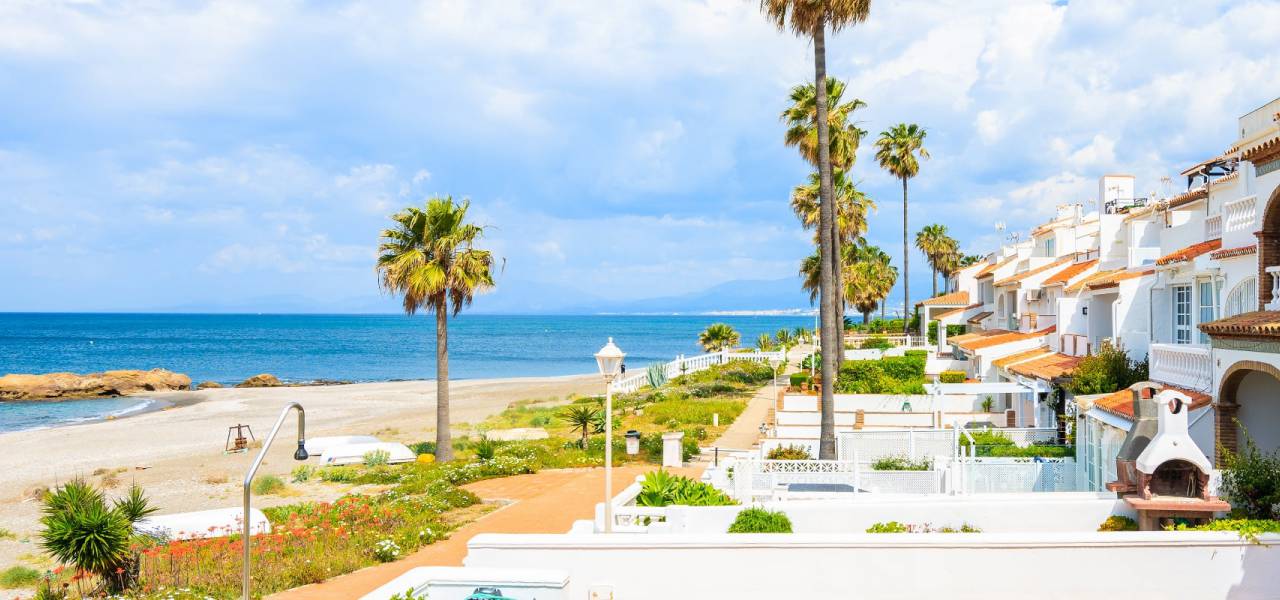Moving To Spain: A Guide For Expats

With year round sunshine, 8,000 km of beaches and a very competitive cost of living, Spain has long been a favourite destination for British expats. The Costa Blanca and Costa Del Sol are magnets for retirees, while vibrant cities like Barcelona and Madrid are full of young British expats enjoying the relaxed Spanish lifestyle.
Quick Facts About Spain
- Population: 46.77 million
- Number of British expats: 761,000
- Most popular areas for expats: Costa Blanca, Costa Del Sol, Barcelona, Valencia and Madrid
- Currency: Euro
- Official language: Spanish, but there are also widely used regional dialects and languages such as Catalan, Valenciano and Gallego
- Main industries: Tourism, Automotive, Energy, Textile Manufacturing
What Visas and Paperwork Do You Need?
Spain is a member state of the European Union, so British citizens don’t need any additional visa to freely work and live in Spain.
However, as an expat you will need to get a Número Identificación de Extranjeros (NIE number), which registers you with the authorities. Once you have accommodation, you will also need to register yourself (and all other members of your family) at the Town Hall in order to get a Certificate of Empadronamiento. You will be required to show this when you register with a school or doctor, or do certain other things such as buy a car.
The Cost of Living
People used to prices in the UK will find the cost of living in Spain refreshing – however bear in mind that this is reflected in Spanish salaries. Accommodation in popular cities can be expensive however, and utilities are also noticeably higher – up to 20% up on UK averages.
Setting Up Your Finances
There are over 170 financial institutions to choose from in Spain, split into bancos (private banks) and cajas(state owned). Cajas are often much more ethical in their investments, including funding local social projects, and are often locally based with just a few branches. Major bancos with branches across the country include Santander, Banco de Sabadell and Banco Popular. There is usually an annual fee of up to €30 for a current account and additional fees for debit cards and saving accounts. You will need yourNumero Identificación de Extranjeros to open your account, as well as your passport, proof of employment (or unemployment) and a proof of address.
Finding And Getting Work
Spain’s unemployment rate is high – a jaw-dropping 22.7% as of April 2015. Competition for the available jobs is fierce, and if you don’t speak passable Spanish you will find it very difficult to get work outside of seasonal tourist jobs, or teaching English. Industries that are experiencing shortages of qualified people include engineering, IT, and medicine.
Personal networks are incredibly important in Spain, with many jobs not advertised and filled instead by word of mouth and referrals from existing employees. Get involved in your expat community, and in any professional networks that exist in your area, and make sure people are aware that you are actively job-hunting.
Finding Somewhere To Live
The big property crash in 2007 means there is a surplus of accommodation in all but the most popular areas, so finding a place to live is not usually a big problem. Expats moving to the cities will find that rent can take up quite a large proportion of their income, especially in the centre of Barcelona or Madrid, but the standard of apartments in Spain is generally very good.
If you are retiring to Spain then you might be considering buying a property rather than renting, and as prices have still not picked up much beyond the 2007 levels this can be a bargain. However, care must be taken to ensure that everything is above board – there have been nightmare stories of Brits being sold illegal properties. Make sure you engage the services of a bilingual and reputable agent to walk you through the paperwork.
Education And Schools
The Spanish school system gives you the choice of sending children to state school, private school orcolegios concertados. These are semi-private and generally offer better facilities than the state schools but with less of a price tag than going fully private. International schools are also a popular option with expats, with lessons taught in both English and Spanish.
Healthcare
Although the healthcare budget in Spain has been cut over the last few years due to austerity measures, it is still offers a good standard of care. Expats who are resident in Spain are entitled to free (or low-cost: some treatments are only covered 75%) healthcare through the Sistema Nacional de Salud (public healthcare system), as long as you have a social security number.
Many expats, especially retirees, choose to go down the route of private healthcare, as it is still affordable and offers a greater choice of options. If you think you will be using this regularly however, taking out insurance will be cheaper than paying the extra each time.









 Back
Back


